
AlphaLISA Mouse TNF receptor 1 (TNFR1) Detection Kit, 100 Assay Points
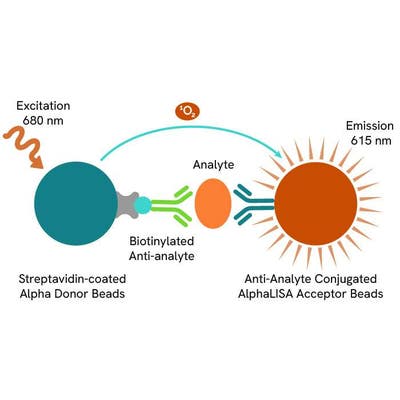
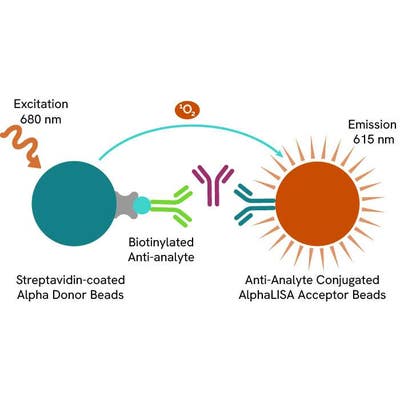
 View All
View All
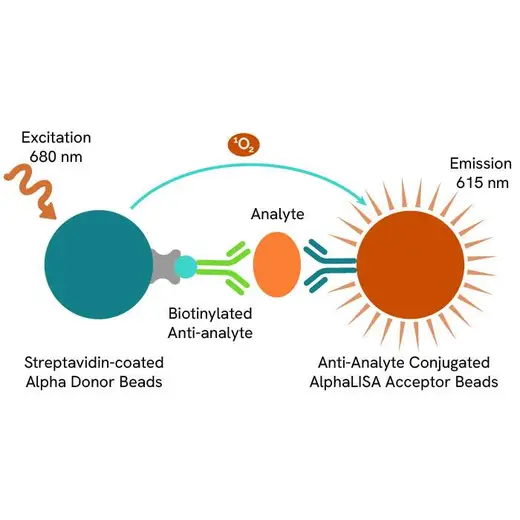
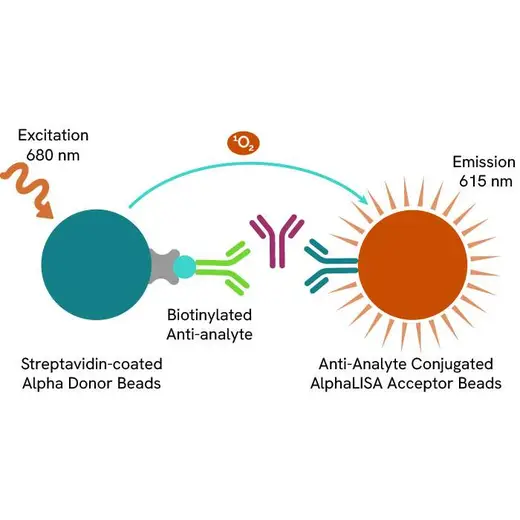



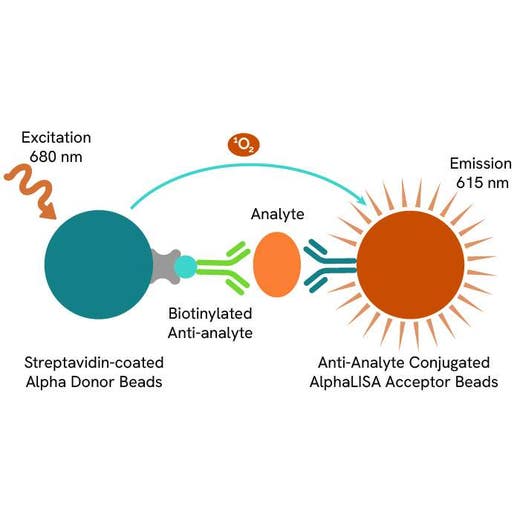
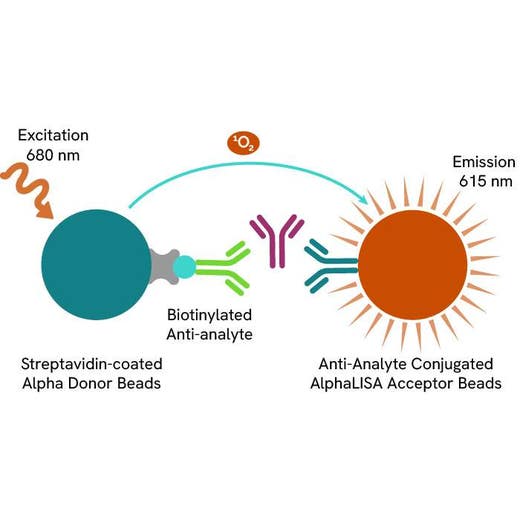



| Feature | Specification |
|---|---|
| Application | Protein Quantification |
| Dynamic Range | 1.9 - 100,000 pg/mL |
| Limit of Detection | 1.9 pg/mL |
| Limit of Quantification | 6.4 pg/mL |
| Sample Volume | 10 µL |















Product information
Overview
Formats:
- Our 100 assay point kit allows you to run 100 wells in 96-well format, using a 100 µL reaction volume (10 µL of sample).
- Our 500 assay point kit allows you to run 500 wells in 96-well or 384-well format, using a 50 µL reaction volume (5 µL of sample).
- Our 5,000 assay point kit allows you to run 5,000 wells in 96-well or 384-well format, using a 50 µL reaction volume (5 µL of sample).
AlphaLISA features:
- No-wash steps, no separation steps
- ELISA alternative technology
- Sensitive detection
- Broad sample compatibility
- Small sample volume
- Results in less than 3 hours
- Half the time of an ELISA assay
AlphaLISA technology allows the detection of molecules of interest in buffer, cell culture media, serum and plasma in a highly sensitive, quantitative, reproducible and user-friendly mode. In an AlphaLISA assay, a Biotinylated Anti-Analyte Antibody binds to the Streptavidin-coated Alpha Donor beads, while another Anti-Analyte Antibody is conjugated to AlphaLISA Acceptor beads. In the presence of the analyte, the beads come into close proximity. The excitation of the Donor beads provokes the release of singlet oxygen molecules that triggers a cascade of energy transfer in the Acceptor beads, resulting in a sharp peak of light emission at 615 nm.
TNFR1 is a transmembrane receptor of TNF-α and TNF-β. The soluble form (sTNFR1) is released by the cell in inflammatory response. sTNFR1 interacts with free TNF-α to inhibit inflammation. Many neurological disorders are associated with high levels of serum TNFR1 such as, schizophrenia, bipolar, and dementia. Mutations of the gene which encodes TNFR1 may lead to tumor necrosis factor receptor associated periodic syndrome (TRAPS) and/or multiple sclerosis.
Specifications
| Application |
Protein Quantification
|
|---|---|
| Automation Compatible |
Yes
|
| Brand |
AlphaLISA
|
| Detection Modality |
Alpha
|
| Dynamic Range |
1.9 - 100,000 pg/mL
|
| Limit of Detection |
1.9 pg/mL
|
| Limit of Quantification |
6.4 pg/mL
|
| Product Group |
Kit
|
| Sample Volume |
10 µL
|
| Shipping Conditions |
Shipped in Blue Ice
|
| Target |
TNFR1
|
| Target Class |
Cytokines
|
| Target Species |
Mouse
|
| Technology |
Alpha
|
| Therapeutic Area |
Oncology
|
| Unit Size |
100 assay points
|
Video gallery
Resources
Are you looking for resources, click on the resource type to explore further.


Loading...
How can we help you?
We are here to answer your questions.






























